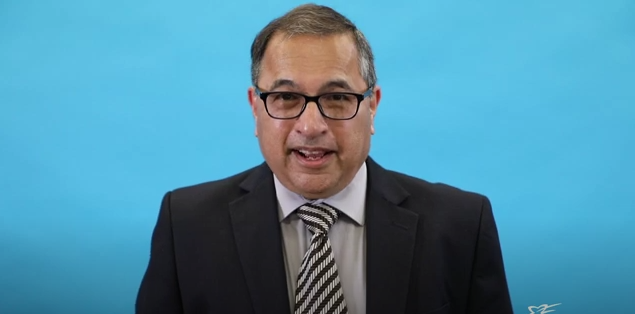A Newmarket man is among the latest confirmed cases of the faster spreading United Kingdom variant of COVID-19, which has more than doubled in York Region in the last two weeks, with more than half acquired in the community.
As of Monday, 15 cases of the variant had been confirmed to date, with at least nine acquired by local transmission, said York Region medical officer of health Dr. Karim Kurji.
“Nine are acquired locally that don’t seem to have any association with travel cases. This is not good news for us,” he said on his weekly video update.
The Newmarket man, who is in his 30s, acquired the variant strain in the community and not through contact with a confirmed travel case, according to regional spokesperson Patrick Casey.
All but one of the 15 cases have been investigated, Kurji said, and at least three more of the variant strain, identified as B.1.1.7., are anticipated, according to results from the Public Health Ontario labs.
This is the same strain that has led to the deaths of 45 people associated with the Roberta Place outbreak in Barrie. On Sunday, Simcoe-Muskoka medical officer of health Dr. Charles Gardner said he's "fully convinced" that all of the Roberta Place deaths and more than 200 confirmed cases linked to the facility are from the UK variant.
Meanwhile, as of Jan. 12, seven variant cases have been confirmed in York Region.
Four residents in King Township — including the region's first case confirmed Jan. 2 in an individual who had returned from a December trip to the UK — as well as two Georgina residents and one Richmond Hill resident were confirmed with the variant strain.
Residents from Vaughan and Markham have now also been confirmed with the variant strain, Casey said.
To date, no cases of the UK variant have been confirmed in long-term care homes in York Region, he added.
In a bid to further stem the spread of variants, Kurji stressed the importance of following public health measures for physical distancing, masking and staying at home.
Close contact continues to be the largest factor of spread of the COVID-19 virus in York Region's nine municipalities.
“It’s very important now that we try to manage the spread of this variant, delay it as much as possible, hopefully until such time as we have all been immunized — which is going to be an almost impossible task,” he said.



